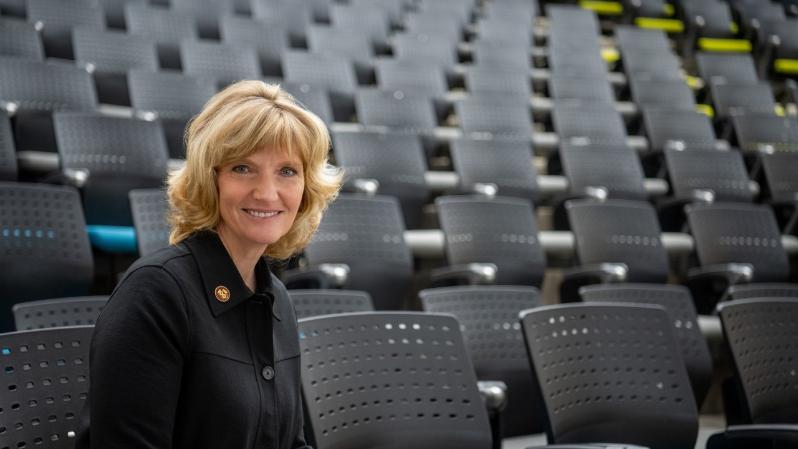The future of higher education won’t be written for us – it will be written by us.
One of the greatest privileges of my role as President at Memorial University, Newfoundland and Labradorso far has been the chance to listen. Listening is a privilege because people don’t have to share their stories — they choose to and, in the process, entrust you with their hopes, frustrations, questions, and opinions about what matters most. In these first few weeks, I’ve met students, faculty, alumni, and community leaders — each offering a perspective that expands my own. And when something truly resonates, it lingers and sparks reflection.
One such moment came in a recent conversation with Zita Cobb, an entrepreneur, philanthropist, and community builder who has inspired communities around the world to reimagine what’s possible when culture, creativity, and economic life are woven together. She spoke about community autonomy and argued that dignity comes when communities choose to shape their own future rather than waiting for others to define it for them. And that financial viability and meaning-making can, and must, go hand in hand. Those insights struck home.
The conversation reminded me that when ideas are lived — as they are in Zita’s work — they no longer sound like buzzwords. Innovation and entrepreneurship become real, practical paths forward: the kinds of approaches that make thriving possible, even in the face of adversity and constraint.
That is an important lesson for us as a university. It takes courage to see responsibility, creativity, and shared destiny not as abstract ideals, but as practical guideposts for how we navigate this moment of pressure and possibility.
We see this unfold each September. As students step into their classes and take the lead in their learning journeys, they show us that opportunity isn’t passive — it’s created. Their choices, their perspectives, their willingness to lean into the unknown are reminders that transformation begins long before outcomes are realized. As Rosamund and Benjamin Zander remind us in The Art of Possibility: “Possibility doesn’t start with circumstances; it starts with perspective.” And the more I listen here at Memorial University, the more I see that perspective will define whether we treat our current challenges as limits — or as the raw material for transformation.
That idea of perspective, of how we choose to frame and live our story, is something Memorial University understands better than most.
We are home to a world-renowned program in folklore. Folklore teaches us that accountability is lived, remembered, and carried through the stories we share — stories of resilience, adaptation, and belonging. These stories don’t just preserve culture; they create identity and continuity. They remind us that our communities are not defined by what happens to us, but by how we respond, how we care for one another, and how we pass on meaning across generations.
In folklore, as in the hero’s journey, threads of meaning are woven through struggle and transformation. The journey begins with a call, moves through trials, and leads to hard-earned insight. One of its central truths is that resilience and courage were within us all along — the journey simply revealed them. These stories empower us to carry wisdom forward: courage, creativity, and connection. And often, the end opens new possibilities we never have imagined at the beginning.
These are precisely the insights higher education must draw on now.
Destiny is not handed to us by governments, markets, circumstances, or even degrees. It’s written by the choices we make together along the way. Today, at Memorial University, this means taking responsibility for the realities in front of us — financial pressures, demographic shifts, and evolving expectations — without losing sight of what we stand for: academic quality, student experience, research impact, and community engagement. It means seeing vibrancy and viability as interdependent and what -- combined -- makes us strong.
Shared accountability begins with being clear-eyed about the moment we are in. Progress will come from working through the complexity, together, and refusing to reduce ourselves to either/or answers: right or wrong, hope or worry, risk or safety. In today’s world, these live side by side; our task is to hold them, navigate them, and act with courage anyway.
And so, I will return to the privilege of listening. Each conversation, whether with a student finding their way, a faculty member sharing their concerns or a community leader envisioning partnership, is a reminder that accountability is not a burden but rather an invitation to co-create our shared future. As Rosamund and Benjamin Zander put it: “Life is revealed as a place to contribute and we as contributors. Not because we have done a measurable amount of good, but because that is the story we tell.”
The question is: what story will we tell, about who we are, and who we will become ... together?
